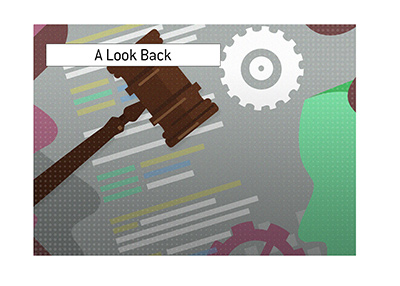Guilty Plea By Rennick Helped Government Build Case Against Online Poker Sites
Published on May 14th, 2020 10:11 am EST In May of 2010, 35 year-old Douglas Rennick stood up in a Manhattan courtroom and pled guilty to violating the Wire Act.
In May of 2010, 35 year-old Douglas Rennick stood up in a Manhattan courtroom and pled guilty to violating the Wire Act. Rennick admitted to processing more than $350 million in payments for the largest online poker rooms that continued to service the US market at the time - Full Tilt Poker and Pokerstars. A year earlier, federal prosecutors had frozen funds that were being handled by Rennick, and the biggest sites had to reimburse their players for this lost money.
A month earlier, in April of 2010, Daniel Tzvetkoff, the owner of another payment processing firm that was used by the larger online poker rooms, was arrested in Las Vegas.
At the time, these events didn't seem to bother the industry too much - in fact, they didn't receive much press.
In the end, however, these arrests were setting the stage for "Black Friday", which would occur in 2011.
With the arrests of Rennick and Tzvetkoff, the federal government was building a case against the likes of Full Tilt Poker, Pokerstars, Ultimatebet and Absolute Poker. This is how the government works - start small, get people to flip and give them information, all while building a case against their intended targets.
The owners of Full Tilt Poker and Pokerstars were not worried, as they wrongly believed that the law was on their side in the matter. They believed that continuing to operate in the United States wasn't against the law, and they also wrongly believed that the Obama Administration would be softer than the Bush Administration when it came to online gambling enforcement.
They couldn't have been more wrong.
The freezing of Rennick's funds continued a ridiculous race between the biggest online poker sites and the government. The government would freeze funds, and the online poker sites would try to stay one step ahead.
These sites relied on the unencumbered flow of funds in order to keep their US operations open. The United States is the most lucrative market for online gambling in the world, and Pokerstars/Full Tilt Poker were determined to remain, despite the actions of the US government.
Pokerstars, Full Tilt Poker, Absolute Poker and Ultimatebet took increasingly risky measures in order to keep the funds flowing, including the mis-coding of credit card transactions and the setting up of companies with fictitious business models in order to stay one step ahead of the authorities.
If you received a paper check from one of these companies at the time, you likely received a payout from a company that purported to be in the business of selling golf balls or something like that.
If you read the Forbes.com article linked below, you should shake your head. How could the online poker rooms have continued to operate in such an environment, when the federal government was clearly coming for them?
Things worked out for Pokerstars (they continue to be the largest online poker room in the world), though Full Tilt Poker, Absolute Poker and Ultimatebet all didn't make it.
-
It took ten years, but all of the people targeted in the "Black Friday" indictment have now been arrested. The last of these men, Isai Scheinberg, was recently nabbed by US authorities and is now awaiting his sentence.
Source: Forbes.com - Online Poker War Heats Up
--
Filed Under: Online Poker Rooms




